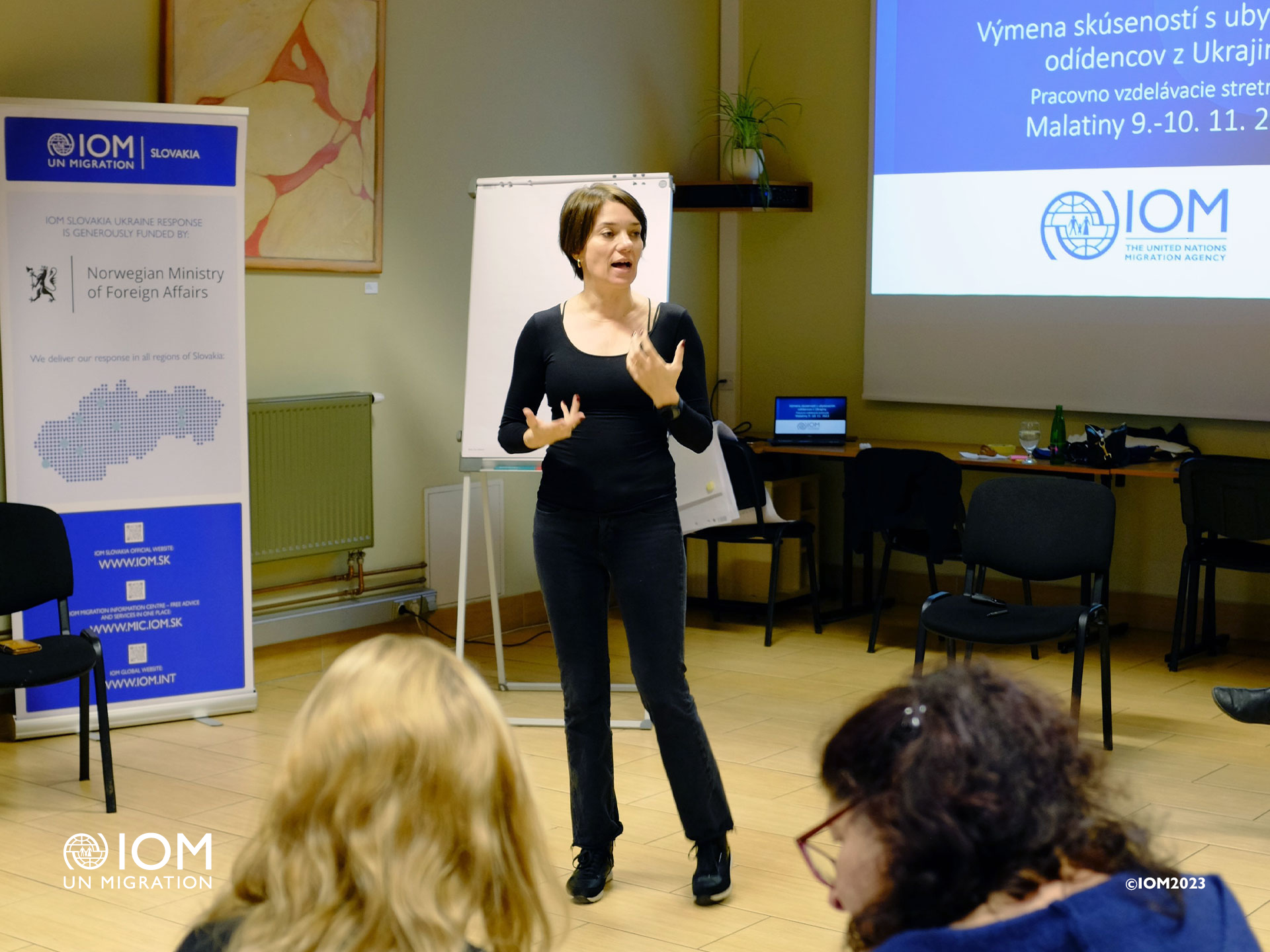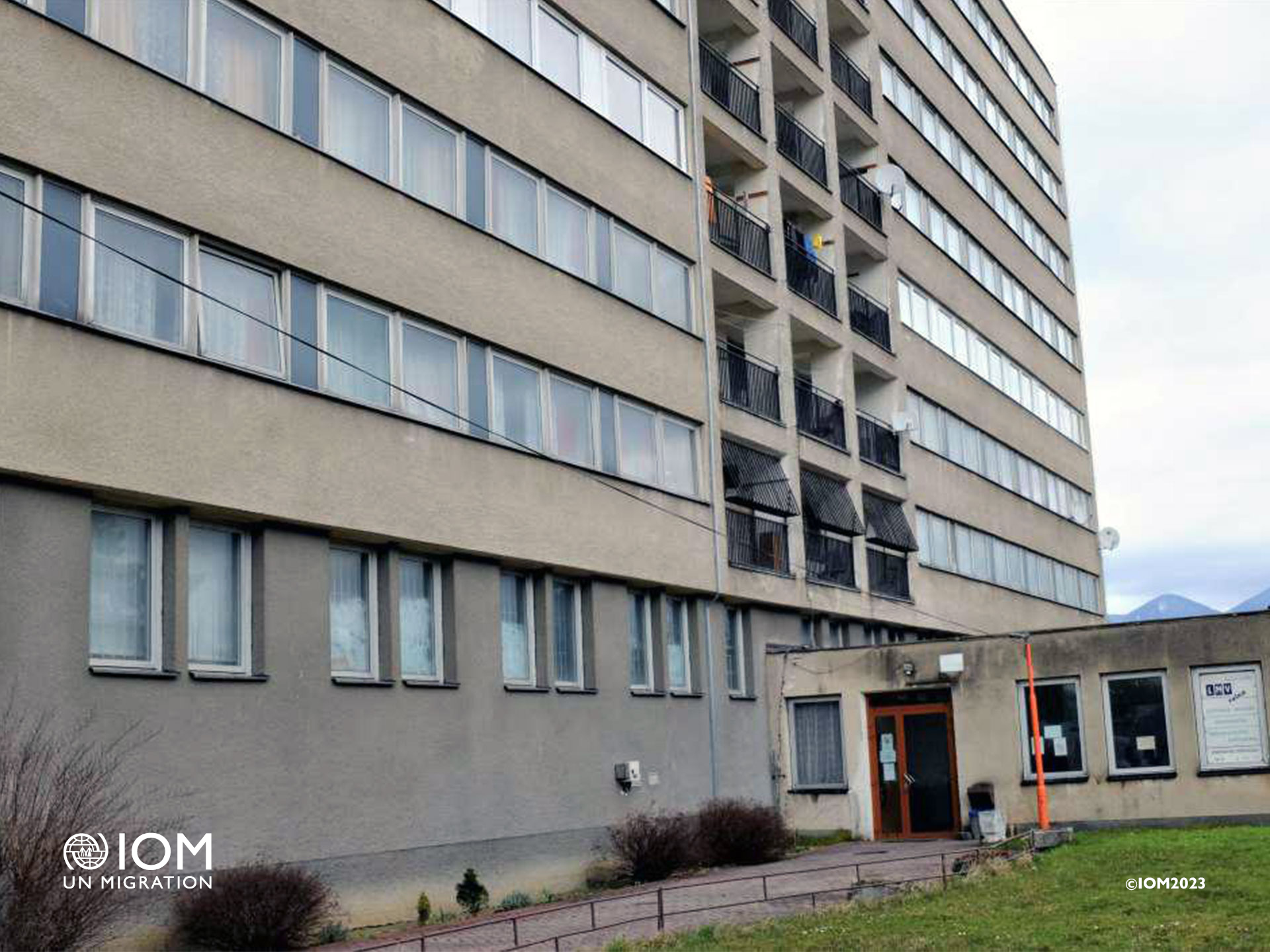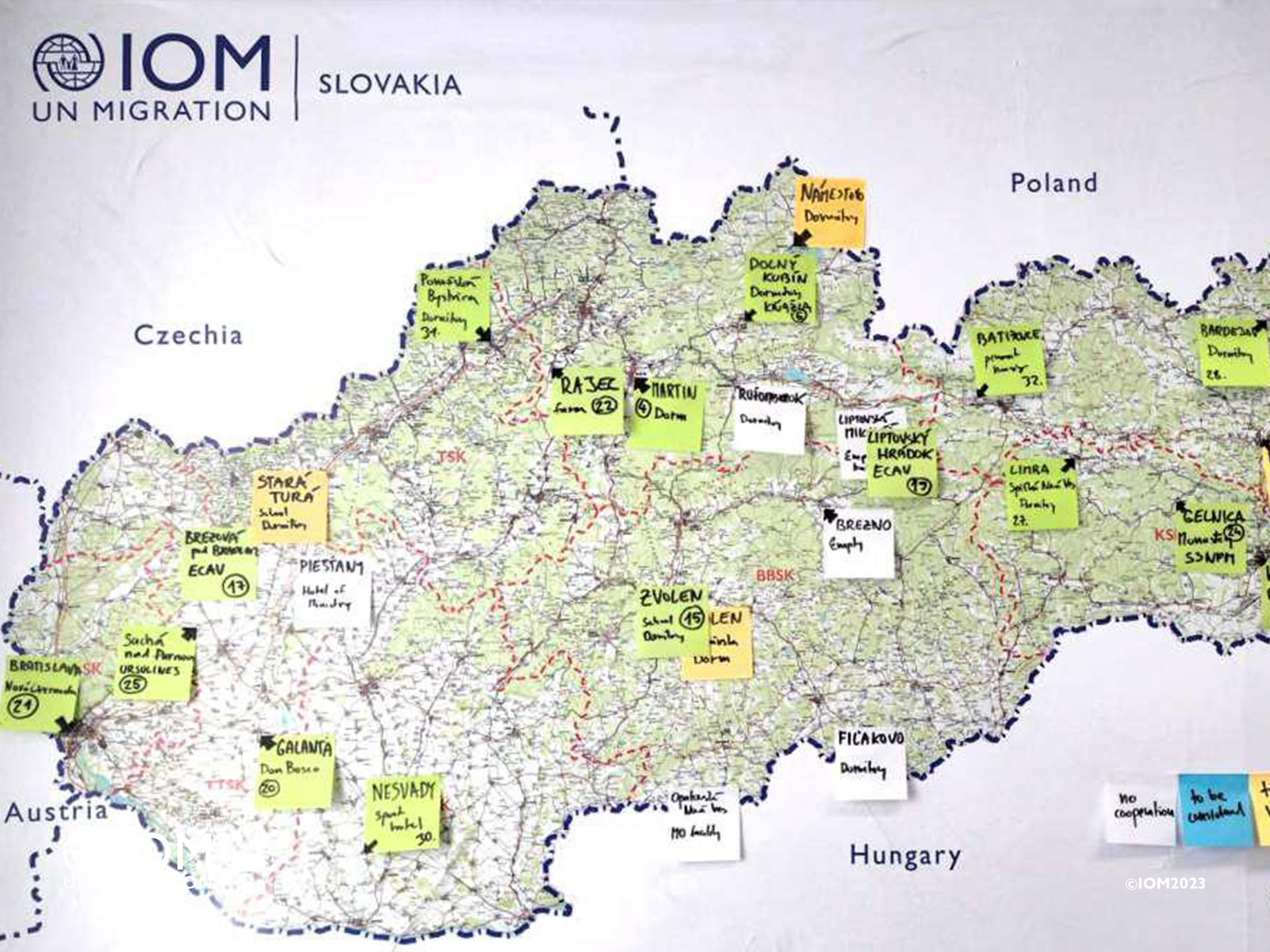February 2022 called into action a myriad of stakeholders. Various accommodation providers were among them, ready to shelter people from war-affected Ukraine across all regions in Slovakia. Whether from a humanitarian motive, willingness to help or simply responsibility and duty, the migration situation following the invasion in Ukraine requested a prompt, all-hands-on-deck approach.

IOM is trying to connect accommodation sites in all regions of Slovakia providing support fot the site management. Photo © International Organization for Migration (IOM) 2023.
One-third in collective facilities
Apart from private persons opening their homes and hearts, people fleeing from Ukraine found accommodation also in collective facilities. These were either commercially run establishments such as hotels and hostels or buildings mandated by the state to open and provide shelter under crisis management, such as secondary school dormitories. In 2022, approximately one-third of one hundred thousand people with temporary protection status in Slovakia lived in such collective facilities.
Twenty-four months into the crisis, many refugees from Ukraine remained in collective centres, which have become their new homes. Several factors, including high home ownership, hamper housing accessibility in Slovakia. About nine out of ten people in Slovakia live in privately owned flats and houses. The market for rental housing is under ten per cent, and social housing even less.
The accommodation facilities, operated by the local government, needed to act swiftly. Mothers, children and other vulnerable groups crossing the Ukrainian-Slovak border in the first months after the start of the full-scale invasion in Ukraine presented a different type of clients they were used to serving. Suddenly, the help with accommodation to people fleeing Ukraine brought new needs and tasks – communicating in languages other than Slovak, such as, finding up-to-date information on temporary protection status and school enrolment.

Vocational school dormitories are often turned into accommodation sites for people who fled the war in Ukraine. Photo © International Organization for Migration (IOM) 2023.
Over nine months the critical necessities evolved from shelter, food and emergency health care into more complex yet challenging. Building their lives anew, they were looking for stable and long-term housing, adequate job opportunities, comprehensive health care, including mental health, specialized care and disability support. School enrolment, communication with local authorities, social life and active cohabitation with local people are also essential. Learning or even mastering the local language was often a tool that helped them resolve their needs and advance in their lives.
Challenging times require an innovative approach
The International Organization for Migration (IOM) in Slovakia has been intensively mapping and supporting collective accommodation facilities for almost a year. Gradually, it became apparent that directors and staff of state-owned collective facilities faced the challenges alone, without knowing where to turn to for support. “The management of the accommodation facilities are the people who have been on the ground since the beginning; it is essential to give them a voice to share their first-hand experiences,” said Michal of the IOM Emergency department.
IOM developed a network of collective facilities through which the Organization offers site management expertise and facilitates a learning environment for sharing experiences and best practices. By the end of 2023, the Emergency team organized an in-person meeting in Malatiny, Northern Slovakia, with the first participants, eight accommodation facilities managers, providing shelter to almost 280 people.
The participants were introduced to the topic of human trafficking and its prevention. The meeting created a valuable platform for cooperating, networking and critical exchange of information on the facilities’ needs as they evolve. The collaboration enables effective and timely addressing of needs. This collaborative platform enables IOM to provide context-specific support based on the mutual sharing of information. IOM Slovakia keeps track of the facilities' latest developments and their evolving status. Ultimately, the ones who benefit the most from the approach are people running before the war and looking for a new home.

IOM Slovakia developed a network of collective facilities through which the Organization offers site management expertise and facilitates a learning environment for sharing experiences and best practices. Photo © International Organization for Migration (IOM) 2023.
A platform to advocate for accommodation
A list of lessons learned, recommendations and the most pressing topics identified during the first meeting provided an excellent common ground for further collaboration. In mid-January, IOM organized a second meeting online. This time, the participants were introduced to the topic of prevention of sexual exploitation and abuse (PSEA), which is a crucial element in equipping vulnerable groups with their rights and protection entitlements. PSEA, as a protection element, is one of three pillars of site management when responding to humanitarian crises.
The IOM initiative created a platform with a unique network that added value for all actors. Thanks to this initiative, collective accommodation facilities can find here expertise and support, a place they can always turn to. In the future, the established base will serve as an essential stepping stone to go even further, foster the network, collaboration, and welcome new members, with an ambition to become an advocate in the field of accommodation.
Further reading:
Maria: Here I can give my children what I would not be able to provide in Ukraine
Ukrainian woman finds strength in Slovakia to go on against all odds
With the support of:

 Slovenčina
Slovenčina
 Українська (Україна)
Українська (Україна)
 English
English
